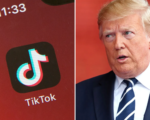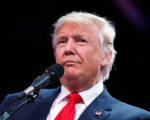A U.S. appeals court on Friday rejected TikTok’s emergency motion to temporarily halt enforcement of a law requiring its Chinese parent company, ByteDance, to divest the app by January 19, leaving TikTok with limited options to prevent a potential shutdown in the United States.
TikTok and ByteDance had filed the motion earlier in the week with the U.S. Court of Appeals for the District of Columbia, seeking more time to prepare their case for the Supreme Court. The companies argued that the law would effectively ban TikTok, a platform with over 170 million monthly users in the U.S., and significantly harm free speech.
The appeals court denied the request, noting that TikTok and ByteDance failed to cite precedent for a court enjoining a congressional act while awaiting Supreme Court review. “We find no case in which such action has been taken,” the court said in its unanimous order.
Following the ruling, TikTok announced plans to escalate the matter to the Supreme Court. A TikTok spokesperson emphasized the platform’s role as a critical speech platform and expressed confidence in the Court’s history of upholding free speech protections.
The law in question mandates that ByteDance divest its ownership of TikTok by January 19 or face a U.S. ban on the app. It also empowers the government to prohibit other foreign-owned apps deemed a national security risk due to data collection practices.
The U.S. Justice Department has defended the law, asserting that ByteDance’s control of TikTok poses “a continuing threat to national security.” TikTok disputes this claim, highlighting that U.S. user data and content moderation are managed domestically, with data stored on Oracle-operated cloud servers.
If the Supreme Court does not overturn the ruling, the app’s fate will hinge on decisions by President Joe Biden and his successor, President-elect Donald Trump. Biden must determine whether to grant a 90-day extension to the January 19 deadline, while Trump, who takes office the following day, has historically opposed a TikTok ban. However, Trump recently indicated he would not pursue the ban if elected.
On a related front, members of the U.S. House of Representatives committee on China have urged Alphabet (Google’s parent) and Apple to prepare to remove TikTok from their app stores if the law takes effect on January 19.
















